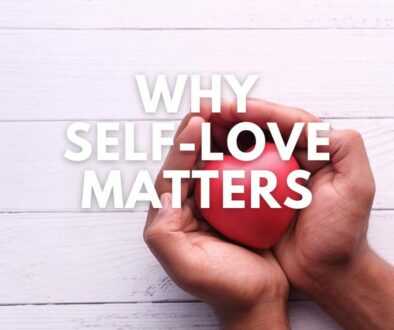Overcoming Barriers to Self-Love: How to Stop Holding Yourself Back
Do you ever feel like self-love is just out of reach? Maybe you think it’s selfish, unnecessary, or something you haven’t ‘earned’ yet. You’re not alone—many people struggle with barriers that make self-love feel difficult. Whether it’s perfectionism, fear of judgment, or lifelong conditioning, these obstacles keep us stuck in cycles of self-doubt and burnout. But here’s the truth: self-love isn’t indulgent. It’s essential. Research shows that practicing self-compassion reduces stress, improves mental health, and leads to stronger relationships. If self-love feels like a struggle, it’s not because you’re incapable of it—it’s because old beliefs are standing in the way.
Identifying and addressing these obstacles is the very first step towards building a healthy and compassionate relationship with yourself. Let’s break them down and replace them with practical strategies that make self-love feel natural and sustainable.
Why Loving Yourself Feels Difficult (And What to Do About It)
1. Fear of Being Seen as Selfish
Mindset Shift: Self-Love is Necessary, Not Selfish
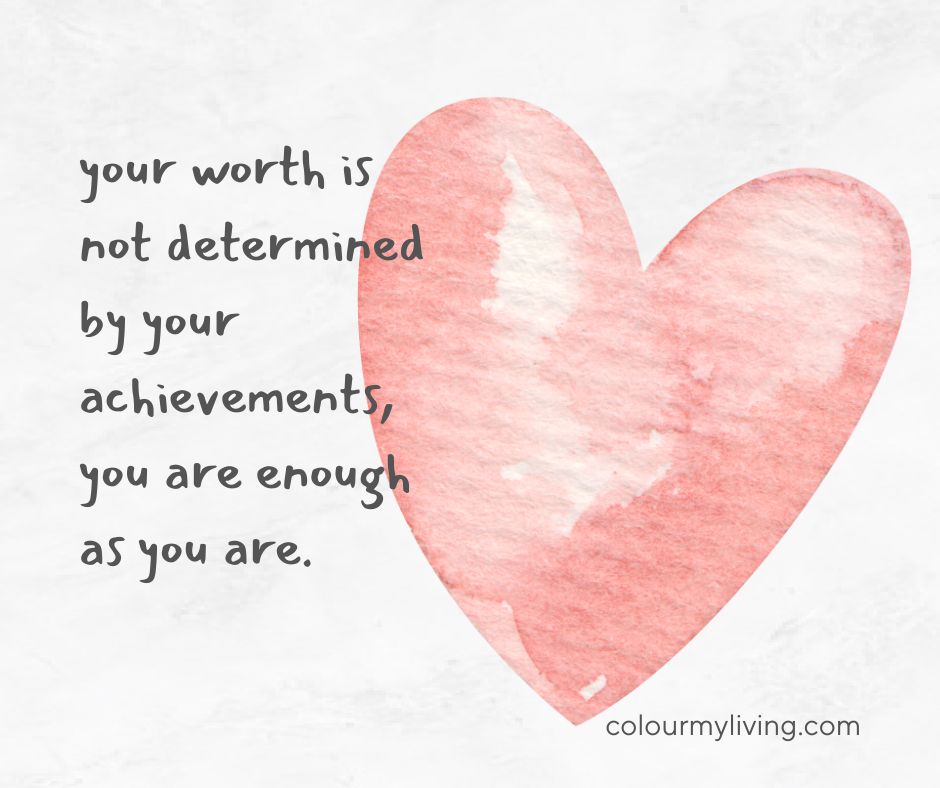
Do you remember your mum telling you to, ‘Share, don’t be selfish’? While it is a common parenting refrain, in essence what it teaches every child, is that it is more important to put someone else’s desires above your own. Reinforced over time, we learn to diminish our own desires and set aside our wants to give in to others with a louder voice or stronger personality. While generosity and kindness are valuable and important, the belief that self-care is a form of selfishness will eventually lead to burnout, resentment, and emotional exhaustion.
Research from the American Psychological Association shows that individuals who set healthy boundaries and prioritize self-care experience lower stress levels and stronger interpersonal relationships. When you meet your own needs, you are more present, more patient, and more emotionally available for the people in your life.
A powerful mindset shift occurs when you recognize that self-love is not about taking from others, but is really about ensuring that you have the emotional and mental resources to show up fully in your life. Think about the airplane oxygen mask analogy—passengers are always instructed to secure their own mask before assisting others. This is not an act of selfishness but rather a necessity to be in a position to help effectively. The same applies to self-care.
Giving yourself permission to prioritize your well-being enables you to support and care for others in a healthier, more sustainable way. When you respect your needs, you are more present in your relationships, more productive in your work, and more fulfilled in your personal life.
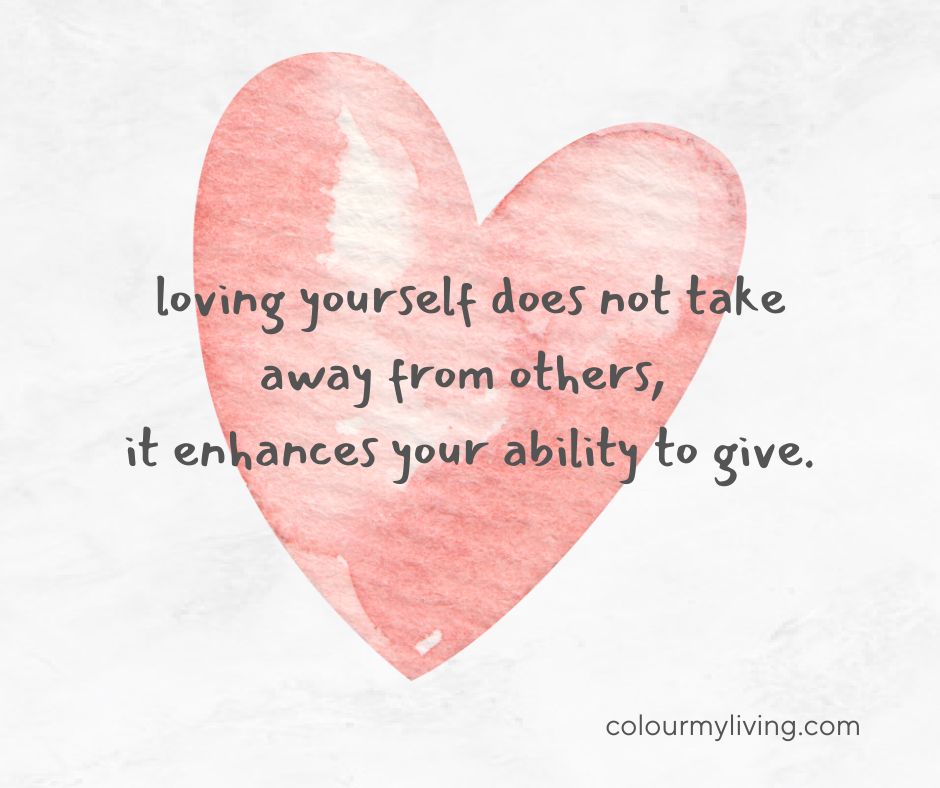
Practical Shift:
Reframing self-care as essential maintenance rather than indulgence can help eliminate guilt. Just as you wouldn’t expect a car to run without fuel, you shouldn’t expect yourself to function at your best without adequate rest and care.
One way to begin this shift is by scheduling guilt-free self-care time into your daily or weekly routine. This could mean setting aside 30 minutes for a quiet walk in nature, enjoying a cup of tea without distractions, reading a book, or engaging in a creative hobby. The key is to choose activities that genuinely recharge your energy and restore your emotional balance.
Additionally, setting clear boundaries around your time and emotional availability can help prevent burnout. If someone requests something that feels overwhelming, practice responding with kindness but firmness:
“I’d love to help, but I need to take care of a few things first.”
“I can’t commit to that right now, but I appreciate you thinking of me.”
Small, consistent actions that prioritize self-care will reinforce the truth that loving yourself does not take away from others—it enhances your ability to give.
2. Perfectionism: The Fear of Not Being “Enough”
Mindset Shift: Self-Love is Unconditional, Not Earned
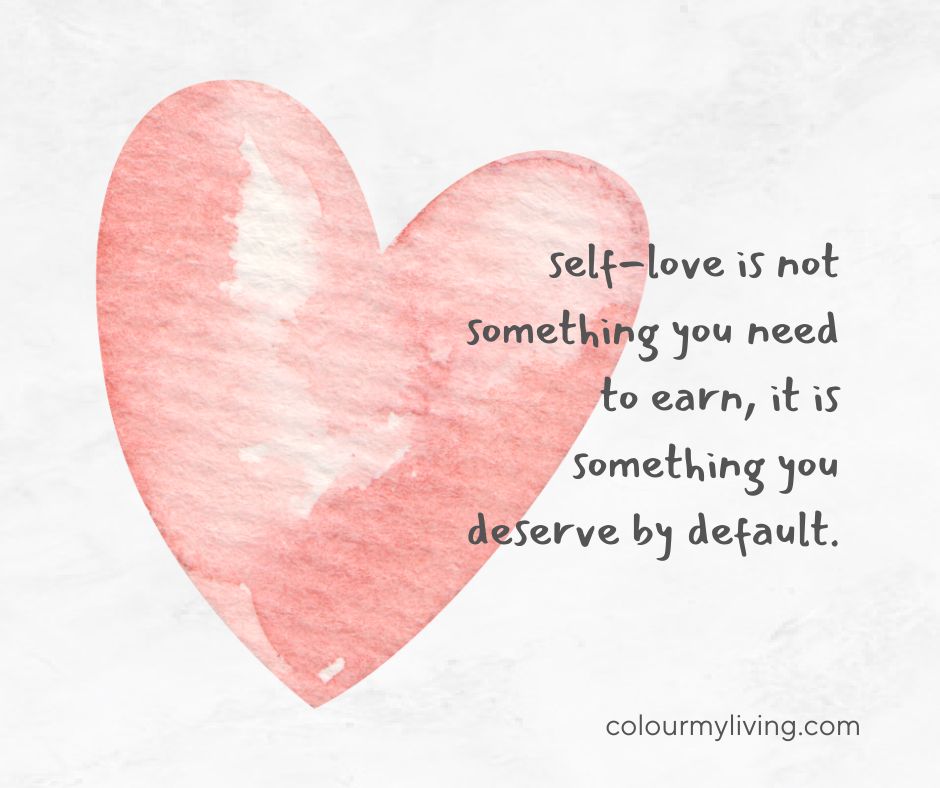
Many people struggle to embrace self-love because they feel they must prove their worth through accomplishments. Perfectionism convinces individuals that they must reach an impossibly high standard before they are “deserving” of self-compassion. However, this mindset places happiness on an unreachable horizon—no matter how much is achieved, perfectionism moves the goalposts.
Shifting toward self-love requires an understanding that your worth is not determined by what you do, but by who you are. Self-compassion researcher Dr. Kristin Neff found that individuals who practiced self-compassion were more resilient in the face of setbacks and less likely to experience self-doubt and anxiety (Neff, 2003).
Instead of waiting until you reach a specific milestone to “deserve” self-love, embrace the idea that you are already enough. Every moment of progress, no matter how small, is worth recognizing and appreciating.

Practical Shift:
One way to break free from perfectionism is to celebrate effort rather than focusing only on outcomes. This means acknowledging small wins along the way instead of waiting for the “big achievement” to justify self-worth.
A great practice is writing down one thing you did well each day. This could be something as simple as completing a task, speaking kindly to yourself, or making time to rest. Keeping a “small wins” journal helps retrain your brain to see progress rather than fixate on what is lacking.
Daily affirmations can also be powerful in shifting self-perception. Instead of saying, “I need to work harder to be successful,” replace it with, “I am growing and learning at my own pace.” Another effective affirmation is “My best is enough, and I am enough.”
Additionally, practicing self-compassion during moments of struggle can transform the way perfectionism affects your mindset. The next time you feel like you have fallen short, pause and ask yourself, “Would I speak this way to a friend?” If the answer is no, reframe your inner dialogue with patience and kindness.
Over time, these small but intentional changes will shift your relationship with yourself from self-judgment to self-acceptance.
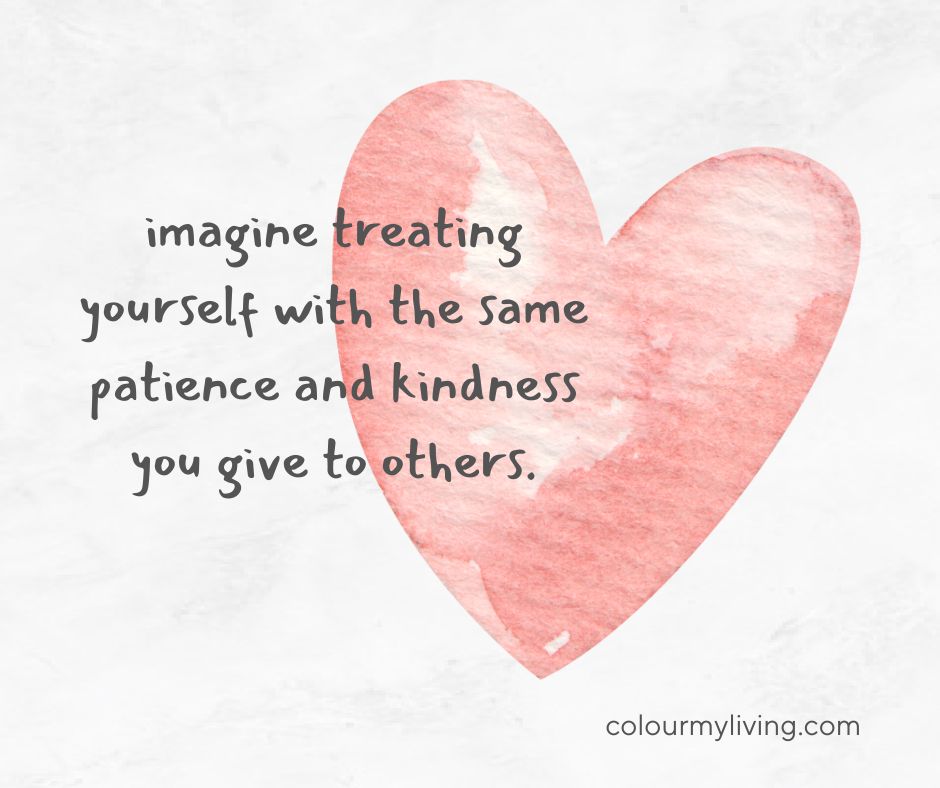
3. Old Conditioning: Basing Self-Worth on Achievements
Mindset Shift: Self-Worth Comes from Within, Not External Validation
Society often reinforces the idea that success equals worth, conditioning individuals to tie their self-esteem to achievements, career milestones, financial status, or external praise. While accomplishments are valuable, they do not define who you are.
True self-worth is not something that can be measured by external achievements—it is an inherent part of your identity. Research in self-determination theory by Ryan & Deci (2000) highlights that individuals with intrinsic self-worth (based on personal values rather than external validation) experience greater life satisfaction and emotional resilience (Ryan & Deci, 2000).
Shifting the focus from external achievements to inner values allows you to develop a sense of self-worth that is stable and unwavering—one that remains intact regardless of circumstances.
Practical Shift:
One way to reinforce internal self-worth is through self-reflection exercises that explore identity beyond accomplishments. Take time to ask yourself:
- What are my strengths that have nothing to do with my job or success?
- What qualities do I value in myself?
- How do I make a positive impact on the people around me?
Journaling about these aspects can help shift focus from achievement-based worth to intrinsic self-worth. Another powerful practice is creating a “self-worth list”—a collection of affirmations that remind you that your value comes from your character, kindness, and personal growth rather than external factors.
Surrounding yourself with people who appreciate you for who you are, not just what you do, also reinforces this mindset. Seek out relationships that recognize your unique qualities rather than solely celebrating external accomplishments.
By consistently practicing self-affirmation, self-reflection, and seeking meaningful connections, you begin to internalize the belief that you are already worthy—independent of any achievement or societal expectation.
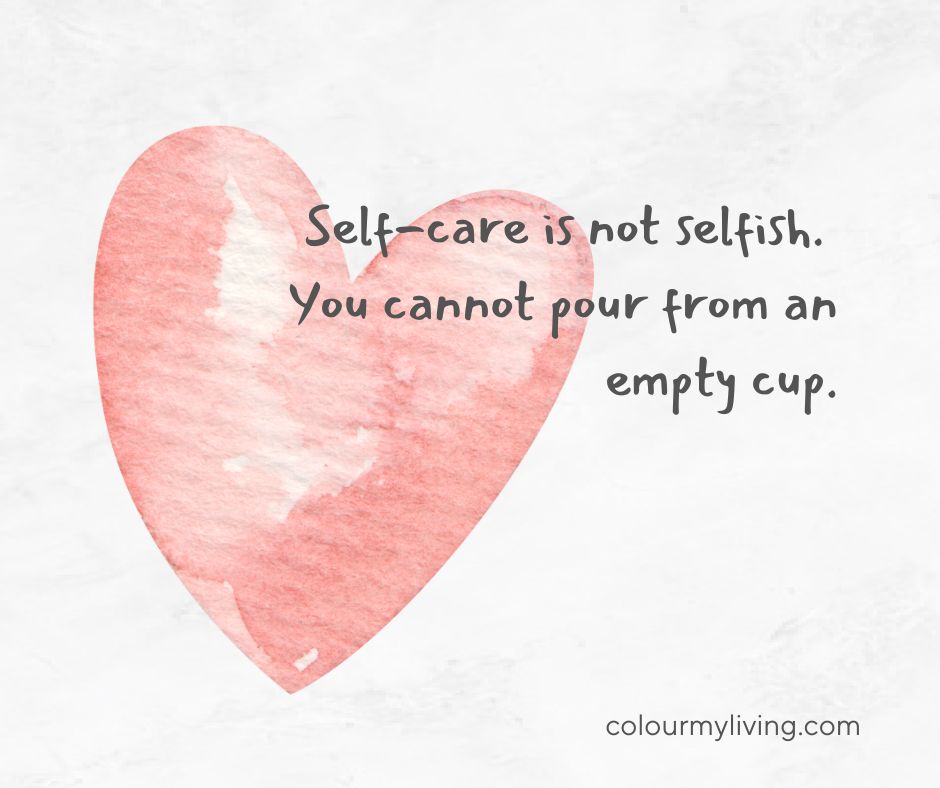
Final Thoughts: Breaking Free from Self-Love Barriers
Breaking down barriers to self-love requires a shift in both mindset and action. Recognizing that self-love is necessary, not selfish, learning to embrace imperfection rather than strive for unattainable perfection, and understanding that self-worth is not determined by external success are all essential steps toward building a healthier relationship with yourself.
Every small shift in the way you think, speak, and treat yourself leads to larger changes over time. Whether it’s setting aside time for self-care without guilt, celebrating daily wins, or challenging old beliefs about success, each act of self-love strengthens emotional resilience, confidence, and fulfillment..
Self-love is not something you need to earn—it is something you deserve by default. By challenging old beliefs, reframing perfectionism, and letting go of external validation, you can step into a more compassionate and fulfilling relationship with yourself. Every small act of self-kindness adds up to greater change.
As you finish reading, take a moment to reflect: Think about your journey toward self-love. What is one belief about yourself that no longer serves you? What is one new belief you’d like to embrace instead? Share your thoughts in the comments or journal about them to deepen your self-reflection.






